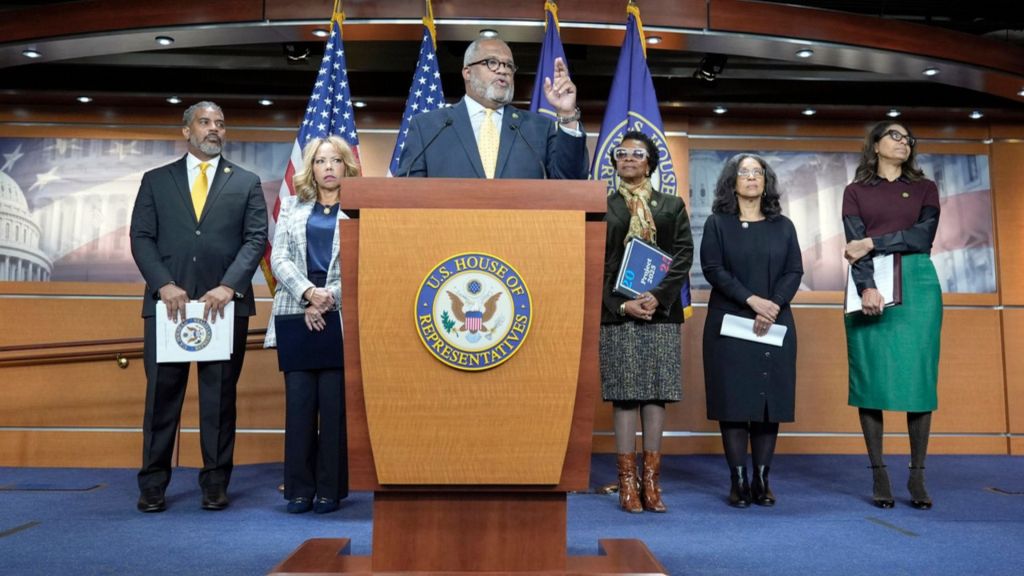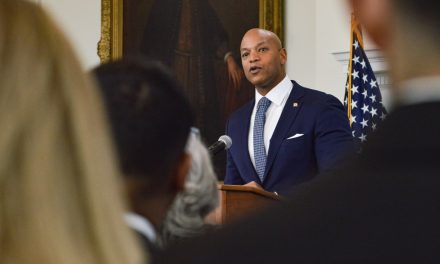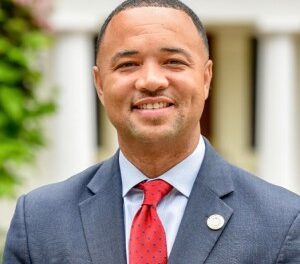By Ashlee Banks
Special to the AFRO
Black caucus members will have to run the gauntlet of Republican partisan control during the 119th session of Congress, nonetheless, the lawmakers said they will fight to advance legislation that will significantly impact Black and Brown communities across the United States. These legislative efforts span various issues, including economic equity, criminal justice reform, healthcare access and voting rights.

One of the most pressing pieces of legislation is the proposed George Floyd Justice in Policing Act. Originally introduced in the wake of Floyd’s murder in 2020, this act seeks to address systemic racism and police brutality in law enforcement agencies across the country. Key provisions include banning chokeholds and no-knock warrants, establishing a national database to track police misconduct, and enhancing accountability measures for police officers. The importance of this legislation cannot be overstated, as it aims to rebuild trust between law enforcement and marginalized communities, ultimately leading to safer neighborhoods and a more equitable justice system.
House Minority Leader Hakeem Jeffries (D-N.Y.-8) told the AFRO he fully supports the act.
“It will be up to Republicans, who don’t seem to have shown any interest in trying to strengthen the relationship in a meaningful way between the police and the community,” said the Democratic leader. “I hope that we can find a way to have a bipartisan conversation about strengthening the relationship between the police and the community for the good of everyone.”
Another significant piece of legislation is the Women’s Health Protection Act, which seeks to protect and expand access to reproductive healthcare, particularly for women of color who often face greater barriers to accessing these services. This act would secure the right to access abortion services and ensure that healthcare providers can offer these services without excessive restrictions. For many Black and Brown women, access to reproductive healthcare is crucial not only for their health but also for their economic stability and ability to make choices about their bodies and futures.
U.S. Sen. Tammy Baldwin (D-Wis.) introduced the act to create federal protections against medical restrictions that undermine American citizens’ access to healthcare and to grant women the right to make their own decisions.
“Every American deserves the freedom to make their own health care decisions without interference from politicians,” the Democratic senator said in a statement. “The is a necessary step to restore Americans’ constitutional right to choose what’s best for their families and allow doctors to do the job they are trained to do – all free from medically unnecessary restrictions.”
In addition, members of the Congressional Black Caucus continue to focus their attention on the John Lewis Voting Rights Advancement Act. This legislation aims to restore and strengthen parts of the Voting Rights Act of 1965 that were weakened by the Supreme Court’s 2013 Shelby County v. Holder decision. The act would require jurisdictions with significant racial discrimination histories to obtain federal approval before changing voting laws. By combating voter suppression tactics that disproportionately affect communities of color, this legislation aims to ensure equitable access to the ballot box, which is fundamental to democracy.
U.S. Rep. Terri Sewell (D-Ala.-7) reintroduced the act to protect Black and Brown Americans’ right to vote and safeguard democracy.
“Generations of Americans – many in my hometown of Selma, Alabama, marched, fought, and even died for the equal right of all Americans to vote,” the Democratic lawmaker said in a statement. “The would prevent restrictive, discriminatory voting laws from taking effect and ensure every eligible American can have their vote cast and counted.”
Another noteworthy legislative effort is the THRIVE Act, which focuses on creating good-paying jobs in clean energy and climate resilience. The act emphasizes investments in communities that have historically been marginalized and disproportionately impacted by environmental degradation. By prioritizing communities of color in green job creation and infrastructure investment, the THRIVE Act seeks to address both economic and environmental injustices simultaneously.
Additionally, the Mental Health Access Improvement Act aims to expand mental health services for underserved populations. The legislation focuses on increasing the availability of culturally competent mental health professionals and expanding telehealth services, which became increasingly important during the pandemic.
The post Congressional Black Caucus continues to push legislation to improve communities of color appeared first on AFRO American Newspapers.











